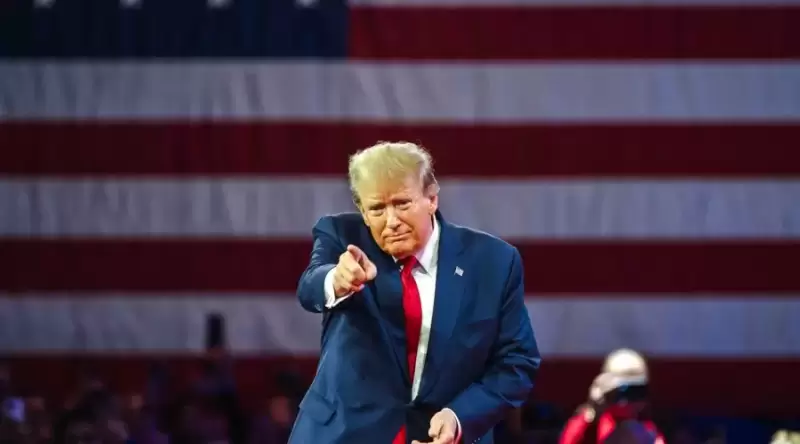 |
|
 |
|
 |
|
 |
|
 |
|
 |
|
 |
|
 |
|
 |
|
 |
|
 |
|
 |
|
 |
|
 |
|
 |
|
ETF和機構正在搶購比特幣,但誰在另一端推動價格下跌?它比你想像的更複雜。

The recent approval of spot Bitcoin ETFs by the SEC has sparked a burning question: who's driving down the price of Bitcoin despite the massive demand signaled by ETF inflows?
美國證券交易委員會 (SEC) 最近批准現貨比特幣 ETF 引發了一個緊迫的問題:儘管 ETF 流入表明需求巨大,但誰在壓低比特幣價格?
To unravel this mystery, we need to zoom out and examine the broader market dynamics at play.
為了解開這個謎團,我們需要縮小範圍並檢查更廣泛的市場動態。
While ETF inflows are certainly a key factor in driving up the price of Bitcoin, there's another crucial dynamic that often gets overlooked: the selling pressure.
雖然 ETF 流入肯定是推高比特幣價格的關鍵因素,但還有另一個經常被忽視的關鍵因素:拋售壓力。
So, who exactly is offloading their Bitcoin and putting downward pressure on the price?
那麼,到底是誰在拋售比特幣並對價格施加下行壓力呢?
One group that's known to sell during bull markets is the early adopters, or OGs. These seasoned holders collectively own more BTC than all the ETFs combined—ten times more, to be precise.
眾所周知,在牛市期間出售股票的群體是早期採用者(OG)。這些經驗豐富的持有者總共擁有的 BTC 數量比所有 ETF 的總和還多——準確地說是十倍。
This selling behavior is not unusual and has been observed throughout Bitcoin's history.
這種拋售行為並不罕見,並且在比特幣的整個歷史中都被觀察到。
Why do they sell?
他們為什麼要賣?
Various factors come into play, such as bills piling up or the desire to cash in on life-changing profits sooner rather than later.
各種因素都會發揮作用,例如堆積的帳單或希望儘早兌現改變生活的利潤。
It's also important to note that BTC whales are more likely to be early tech enthusiasts who got lucky with their timing, either through mining or bold purchases, rather than sage oracles thinking in terms of centuries.
同樣重要的是要注意,比特幣鯨魚更有可能是早期的科技愛好者,他們透過挖礦或大膽購買而幸運地抓住了時機,而不是從幾個世紀的角度思考的聖人。
But there's more to the story.
但這個故事還有更多內容。
The introduction of paper BTC (through CME and Cboe in December 2017) has dramatically transformed the market landscape, especially when considering its interaction with the 2024 ETF launch.
紙幣 BTC 的推出(2017 年 12 月透過 CME 和 Cboe)極大地改變了市場格局,特別是考慮到它與 2024 年 ETF 推出的相互作用。
Futures markets allow you to buy Bitcoin on paper. In other words, you can get Bitcoin exposure from sellers who don't actually have BTC, only USD. This ultimately diverts demand from real to paper BTC.
期貨市場允許您購買紙質比特幣。換句話說,您可以從實際上沒有 BTC、只有美元的賣家那裡獲得比特幣曝險。這最終將需求從實體比特幣轉移到紙質比特幣。
In the past, when Bitcoin experienced price rallies, the selling pressure was primarily driven by OGs and the newly minted coins from miners. However, today, paper BTC plays a pivotal role.
過去,當比特幣價格上漲時,拋售壓力主要是由 OG 和礦工新鑄造的比特幣推動的。然而,如今,紙質比特幣發揮著舉足輕重的作用。
Despite spot holders holding firm, the bear market of 2022 was largely influenced by an influx of paper BTC (The first Bitcoin Futures ETF (ProShares Bitcoin Strategy ETF) was approved in October 2021)
儘管現貨持有者堅守陣地,但 2022 年的熊市在很大程度上受到了紙質 BTC 湧入的影響(第一個比特幣期貨 ETF(ProShares 比特幣策略 ETF)於 2021 年 10 月獲得批准)
Now, let's put two and two together and try to understand how this might be impacting the price of Bitcoin.
現在,讓我們將兩個和兩個放在一起,試著了解這可能如何影響比特幣的價格。
Investors who buy into BTC ETFs are not necessarily buying physical Bitcoin. Instead, they might be buying shares of a fund that holds Bitcoin or gains exposure through derivatives. This can divert demand away from the actual Bitcoin market.
購買 BTC ETF 的投資者不一定是購買實體比特幣。相反,他們可能會購買持有比特幣的基金股票或透過衍生性商品獲得曝險。這可能會將需求從實際的比特幣市場轉移。
BTC ETFs often use futures contracts and other derivatives to gain exposure to Bitcoin prices. These financial instruments do not require the holder to buy actual Bitcoin, thereby increasing the supply of “paper BTC.”
BTC ETF 通常使用期貨合約和其他衍生性商品來獲得比特幣價格的曝險。這些金融工具不需要持有者購買實際的比特幣,這增加了「紙質比特幣」的供應。
This increase in paper BTC supply can meet the demand of new investors without pushing up the price of actual Bitcoin. With more investors able to gain Bitcoin exposure through ETFs and futures rather than buying physical Bitcoin, the demand pressure on the actual Bitcoin market is reduced.
紙質比特幣供應量的增加可以滿足新投資者的需求,而不會推高實際比特幣的價格。隨著越來越多的投資者能夠透過 ETF 和期貨獲得比特幣曝險,而不是購買實體比特幣,實際比特幣市場的需求壓力就會減輕。
This can suppress the price of Bitcoin, as the influx of new investment money is channeled into financial products rather than buying the real asset.
這可能會抑制比特幣的價格,因為新的投資資金的流入會被引導到金融產品而不是購買實體資產。
If the market perceives that most new demand is being met through paper BTC rather than actual purchases, it can influence trader behavior; sellers might be more willing to sell at lower prices, anticipating that demand is being absorbed by derivatives rather than spot markets.
如果市場認為大多數新需求是透過紙質比特幣而不是實際購買來滿足的,那麼它可能會影響交易者的行為;賣家可能更願意以較低的價格出售,因為他們預計需求將被衍生性商品而不是現貨市場所吸收。
This price suppression through derivatives and futures isn't exclusive to BTC; it has played out in several other asset classes.
這種透過衍生性商品和期貨進行價格壓制的方式並非 BTC 所獨有。它已經在其他幾個資產類別中發揮了作用。
免責聲明:info@kdj.com
所提供的資訊並非交易建議。 kDJ.com對任何基於本文提供的資訊進行的投資不承擔任何責任。加密貨幣波動性較大,建議您充分研究後謹慎投資!
如果您認為本網站使用的內容侵犯了您的版權,請立即聯絡我們(info@kdj.com),我們將及時刪除。
-

-

-

-

- 由於期貨合約增加了4.5億美元的清算,市場波動溢出到加密貨幣
- 2025-04-03 15:05:12
- 比平常的市場波動影響公牛和熊,因為加密貨幣期貨在過去的24小時內增加了4.5億美元的清算
-

-

- 標題:特朗普的解放日和互惠關稅結束,比特幣價格持有$ 82K
- 2025-04-03 15:00:13
- 特朗普總統完成宣布互惠關稅後,美國股市和加密貨幣崩潰了。但是,比特幣價格設法持有$ 82K
-

- 比特幣的關鍵通信工具被淘汰了幾個小時
- 2025-04-03 14:55:13
- 從4月2日開始,比特幣用於討論潛在協議更改的關鍵通信工具被淘汰了幾個小時
-

- 從$ 2.99到$ 0.66:Pi Token的炒作淡出了嗎?
- 2025-04-03 14:55:13
- 如今,加密市場正在經歷整體下降趨勢,大多數每日價格變化都是損失。這導致了今天的負PI新聞
-

- Dogecoin(Doge)價格超過250%的收益;頂級分析師突出顯示條件
- 2025-04-03 14:50:12
- 一位著名的加密分析師通過預測本週四的狗狗幣價格的看法,引起了巨大的市場轟動。


























































